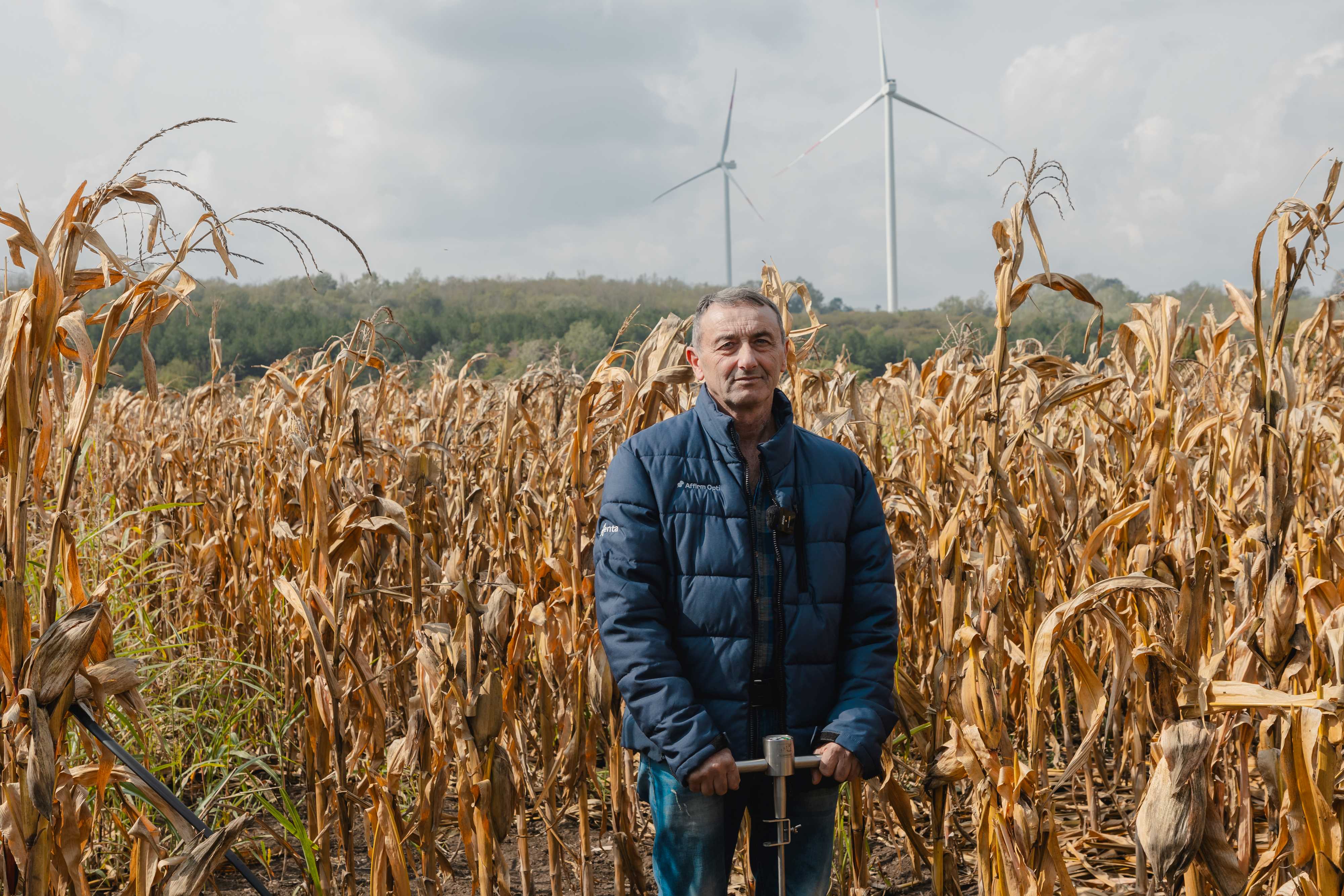Within the project “Strengthening Disaster Resilience in Agriculture”, a media field visit to project sites in Požarevac was organized on Tuesday, 30 September. The visit provided journalists with the opportunity to learn more about project activities and concrete measures being applied in the field to enhance agriculture’s resilience to climate change. The visit also showcased the results achieved so far and their tangible impact on local communities, demonstrating how agricultural innovations can be practical, useful, and inspiring.
The programme began at the Agricultural School with Students’ Dormitory “Sonja Marinković”, where journalists met with the school director, Ivan Miloš, and professor Aleksandra Tošić to discuss the activities carried out under the project. Particular attention was given to the elective subject “Climate Change in Agriculture”, which this school was among the first to introduce in the 2023/24 academic year. Journalists were also presented with the outcomes of informal student groups, an initiative through which students actively participated and helped secure new meteorological stations for the school.
Further insight into the involvement of the Agricultural Advisory and Extension Service of Požarevac (PSSS Požarevac) in the project and the operation of the demo centre in the Braničevo District, which comprises over 60 demo plots, was provided by the director of PSSS Požarevac, Bojan Stević, and advisors Dragana Urošević and Danijela Ilić.
Journalists also toured the school farm, where they were introduced to the machinery and equipment used within the demo centre. The Agricultural School is a partner of PSSS Požarevac, and several demo plots are located on the school farm, giving students the opportunity for hands-on training.
Local farmers engaged in the project also participated in the visit, sharing their experiences – from concrete results achieved by applying climate-smart practices on their plots, to networking and knowledge exchange at workshops and field schools, to new opportunities for advancing sustainable agriculture within their communities. On this occasion, farmer Vladan Đurić explained the use of specific equipment applied in adaptation measures, while farmer Zoran Živković presented the results achieved on his plots in the village of Ćirkovac.

© FAO / Sanja Knezević
Representative of the Food and Agriculture Organization of the United Nations (FAO) Ljiljana Isić highlighted the broader significance of the project at both local and national levels, underlining how joint efforts are strengthening farmers’ capacities to respond to increasingly pressing climate challenges.
Through direct interaction with local project participants, concrete examples and activities, as well as exchanges with experts and farmers, journalists were able to gain first-hand insights into how project interventions directly contribute to strengthening the resilience of agriculture and preparing communities for the challenges ahead.
The visit was organized within the framework of the project “Strengthening Disaster Resilience in Agriculture”, funded by the European Union and implemented by FAO in partnership with the Ministry of Agriculture, Forestry, and Water Management of the Republic of Serbia and other national partners.